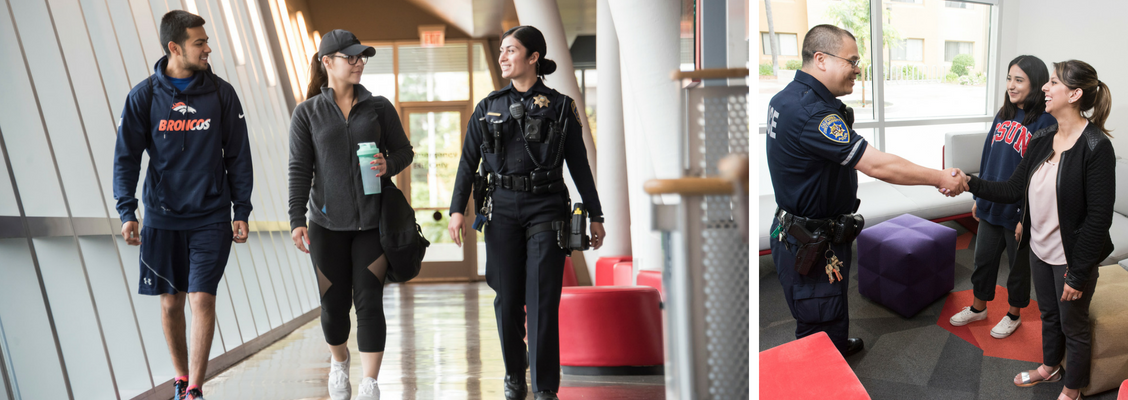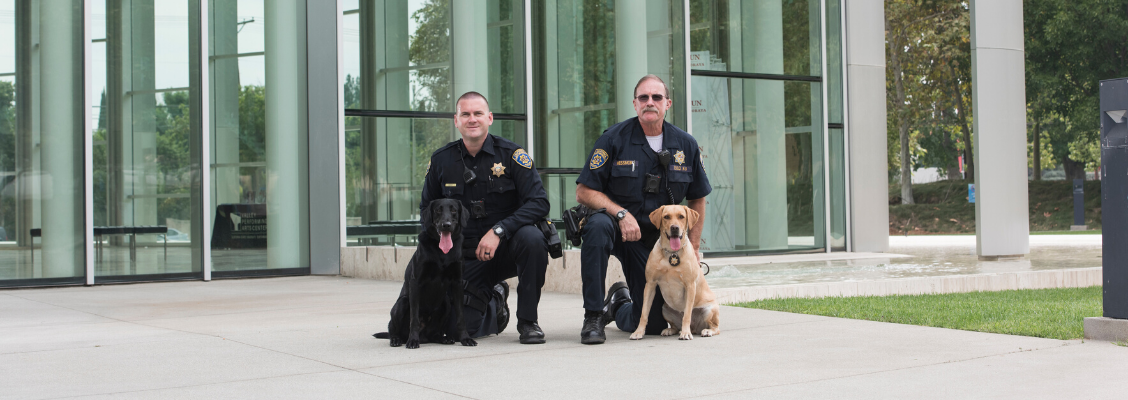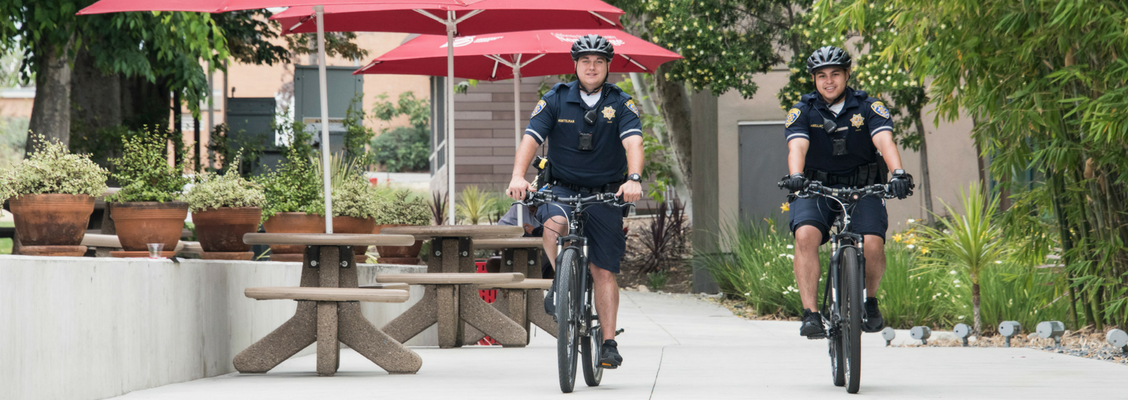The purpose of this addendum is to provide additional information on sexual violence in compliance with the Campus SaVE Act, Title IX, CSU Executive Order 1095 and related legislation on sex discrimination, sexual harassment and sexual violence. At the end of this addendum, you will find updates to resources included in the original booklet, such as updates to website addresses and names of organizations. We encourage you to read the booklet in its entirety, as it contains valuable information and resources that address various aspects of sexual violence.
Your Choice
The decision to report an incident of sexual violence is YOUR CHOICE. Making decisions and regaining control are important aspects of healing after an assault. Whether your assailant was a date, classmate or stranger, the choice of what to do is up to you.
Reporting the incident is a way of regaining your sense of personal power and control. It assists you in doing something about the assault committed against you. By reporting the incident you will be helping others who may have been victimized.
California State University, Northridge (CSUN) has made a commitment to assist you in the process of physical and psychological healing. This includes taking on campus action against your assailant and making referrals for legal or other types of assistance for victims. Please discuss your options with a counselor at the University Counseling Services, Strength United, Department of Police Services, CSUN’s Title IX Coordinator, or other resource listed in this booklet. The University has designated a Title IX Coordinator to provide you with assistance and support, and to monitor and oversee overall compliance with laws and policies related to sexual violence.
Reluctance to Report
Victims of sexual violence may be hesitant to report an assault to the police for many reasons. A victim may be afraid no one will believe them, or that they will be blamed for the assault. They might feel embarrassed or that it’s too personal to share with strangers. Some believe they will bring shame to their families and never report the incident. This is why the Department of Police Services offers a rape crisis advocate to help you talk about these issues and decide what the best course of action is for you.
What To Do If This Happens To You To Do If This Happens To You
- Get to a safe place and call 911.
- Do not bathe, douche, or change your clothes if you have been raped or sodomized.
- Contact someone for help and support. The University Counseling Services offers urgent care walk-in appointments. Strength United also provides counseling services and a 24-hour support line.
- The Department of Police Services, in partnership with Strength United, provide 24-hour rape crisis advocates during police reporting, interviews and SART exams to victims free of charge.
- Go to a hospital for medical care. You will be given a physical exam, baseline tests for sexually transmitted diseases and antibiotics to prevent bacterial STDs. You may also request Plan B to protect against pregnancy. Even if several days have gone by since the assault, it is still important to get medical care.
- Medical professionals are required to notify the police whenever they treat a rape victim but the decision to make a formal police report is still yours.
- If you decide not to go to the police immediately, write down all the details of the assault and save them in case you wish to report the assault to police at a later time.
- You may also report to the campus Title IX Coordinator any incident of sex discrimination, sexual harassment, or sexual violence (e.g., rape, acquaintance rape, dating violence, domestic violence or stalking).
- Seek counseling, information, and legal assistance from a rape treatment center.
- Take advantage of the resources provided to you in this booklet.
Know Your Rights Know Your Rights!
- You have the right to feel safe.
- You have the right to say NO and not feel guilty.
- You have the right to a relationship with someone who respects your wishes and boundaries.
- You have the right to be assertive and direct with someone sexually pressuring you.
- You have the right to change your mind. If you are not sure what you want, it’s ok to STOP and think about it.
- You have the right to be in a relationship free of violence and abuse.
- You have the right to be heard.
- You have the right to make a confidential police report. Your name can remain confidential as a matter of public record.
- You have the right to remain anonymous. Victims or witnesses may report sexual assaults to the University Police Department on a voluntary, anonymous and confidential basis as provided by California law. The “Anonymous Sexual Assault Report” form is available at the CSUN Department of Police Services website. Filing this form will NOT result in an investigation. The CSUN police department will only utilize the report for the compilation of statistical records for assaults that occur on the CSUN campus.
Bystander Intervention
HOW CAN I HELP A FRIEND OR FAMILY MEMBER?
- Let them know that you are concerned for their safety.
- Acknowledge that they are in a very difficult and scary situation.
- Be supportive and non-judgmental.
- Encourage them to participate in activities that can take them away from the situation.
- Even if they continue in the relationship continue to be supportive and let them know you will always be there for them.
- Help with the development of the safety plan, see “Developing a Safety Plan.”
- Encourage them to talk to people who can help. (i.e. a helpline, counselor, CSUN’s Title IX Coordinator or university police).
(Bystander Intervention provided by National Domestic Violence Hotline)
Sex Offenses
Rape: The carnal knowledge of a person, forcibly and/or against the person’s will; or not forcibly or against the person’s will where the victim is incapable of giving consent because of his/her temporary or permanent mental or physical incapacity (or because of his/her youth).
Forcible Sodomy: Oral or anal sexual intercourse with another person, forcibly and/or against that person’s will; or not forcibly against the person’s will where the victim is incapable of giving consent because of his/her youth or because of his/her temporary or permanent mental or physical incapacity.
Sexual Assault with An Object: The use of an object or instrument to unlawfully penetrate, however slightly, the genital or anal opening of the body of another person, forcibly and/or against that person’s will; or not forcibly or against the person’s will where the victim is incapable of giving consent because of his/her youth or because of his/her temporary or permanent mental or physical incapacity.
Fondling: The touching of the private body parts of another person for the purpose of sexual gratification, forcibly and/or against that person’s will; or, not forcibly or against the person’s will where the victim is incapable of giving consent because of his/her youth or because of his/her temporary or permanent mental incapacity.
Incest: Non-forcible sexual intercourse between persons who are related to each other within the degrees wherein marriage is prohibited by law.
Statutory Rape: Non-forcible sexual intercourse with a person who is under the statutory age of consent.
Dating Violence: The term ‘‘dating violence’ means violence committed by a person - who is or has been in a social relationship of a romantic or intimate nature with the victim; and (B) where the existence of such a relationship shall be determined based on a consideration of the following factors: (i) The length of the relationship; (ii) The type of relationship; (iii) The frequency of interaction between the persons involved in the relationship.
Domestic Violence: The term ‘‘domestic violence’’ includes felony or misdemeanor crimes of violence committed by a current or former spouse of the victim, by a person with whom the victim shares a child in common, by a person who is cohabiting with or has cohabited with the victim as a spouse, by a person similarly situated to a spouse of the victim under the domestic or family violence laws of the jurisdiction receiving grant monies, or by any other person against an adult or youth victim who is protected from that person’s acts under the domestic or family violence laws of the jurisdiction.
Stalking: The term ‘‘stalking’’ means engaging in a course of conduct directed at a specific person that would cause a reasonable person to - (A) fear for his or her safety or the safety of others; or (B) suffer substantial emotional distress.
NOTE: The above listed crime definitions from the Uniform Crime Reporting Handbook; sex offenses definitions from the National Incident-Based Reporting System Edition of the Uniform Crime Reporting Program.
Updates to Resources
(Refer to the complete list of resources on pages 13 – 15 of this booklet)
Department of Police Services
CSUN Police Rape Crisis Advocate
(818) 677-7922
www.csun.edu/police
www.csun.edu/police/assault
Equity & Diversity
Title IX Coordinator
(818) 677-2077
www.csun.edu/eqd
Klotz Student Health Center
Strength United - formerly known as Valley Trauma Center
24 Hour Advocate Hotline
San Fernando Valley: (818) 886-0453
Santa Clarita: (661) 253-0258 (V/TTY)
www.csun.edu/eisner-education/strength-united







